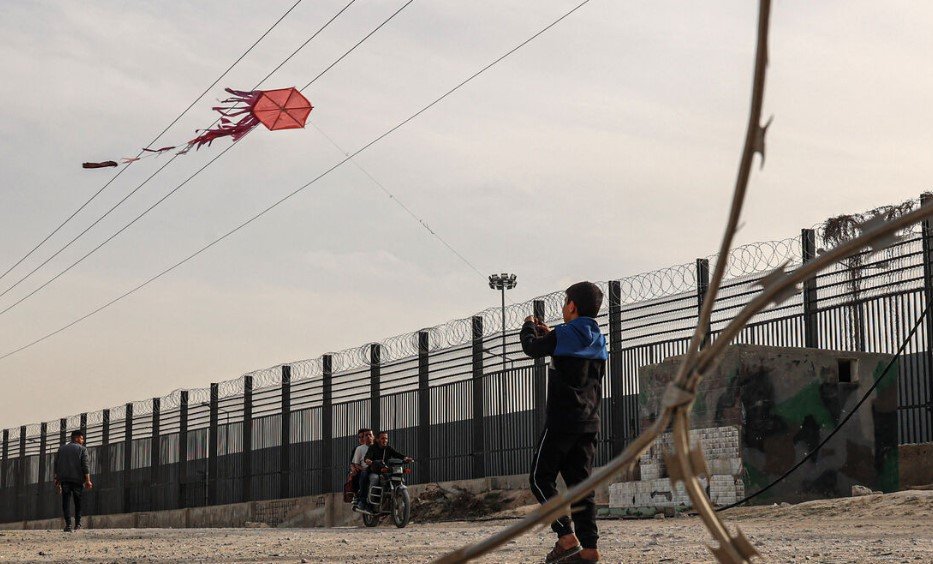Fleeing bombs, abandoned by diplomacy — 100,000 Palestinians now stranded in Egypt without rights, status, or a way home
They crossed the Rafah border under bombardment. Not with suitcases, but with plastic bags stuffed with documents, baby formula, bloodstained clothes. What they didn’t carry were hopes. There wasn’t room.
Tens of thousands of Gazans — doctors, teachers, toddlers, widows — are now scattered across Egyptian cities like Cairo, Ismailia, and Port Said. But calling them “refugees” would be too generous. Egypt hasn’t formally recognized them. The UN can’t protect them. And the world barely notices them anymore.
A Border Opened by Fire, Closed by Silence
It began quietly in late 2023. As Israel’s airstrikes intensified and Israeli troops moved deeper into southern Gaza, a trickle of Palestinians began appearing at the Rafah crossing. Egypt didn’t want to open the gate. But pressure — diplomatic, humanitarian, and visual — made it creak open.
Over the next several months, the numbers surged. Most came on medical permits or short-term student visas. Some had nothing but their name and whatever cash they could borrow. There was no system, no paperwork, and no promise.
But after they crossed, the world moved on.

“We Are Not Dead, But We Are Not Alive Either”
Inside Egypt, their lives are almost invisible. They are not permitted to work. Their children are often barred from public schools. They can’t access public hospitals unless they can pay — which many cannot. Most rent tiny rooms or split crumbling apartments with other families. They stay indoors, afraid of being questioned.
One young father now living in Giza summed it up in a WhatsApp voice note: “My kids haven’t been outside in weeks. They’re scared someone will ask for papers we don’t have.”
Here’s the grim daily reality many face:
-
No legal right to work or earn income
-
No access to public education for children
-
No affordable healthcare options
-
No path to refugee status or permanent residency
-
No UN-recognized protection
And worst of all — no idea if they’ll ever go home.
Cairo’s Quiet Welcome — and Its Limits
Egypt’s government hasn’t formally explained its policy. It hasn’t set up camps, issued ID cards, or acknowledged the full scale of the displacement. Instead, it has allowed Gaza’s war-displaced to exist — quietly, minimally, off the books.
A senior Egyptian official, speaking off record, said the policy is “intentional ambiguity.” Cairo does not want to appear complicit in what it sees as Israel’s long-term plan: to push Palestinians out of Gaza. But it also does not want to leave women and children trapped under Israeli fire.
So Egypt opened the border — but closed its hands.
It’s not a policy. It’s paralysis.
A Shadow Economy Thrives at Rafah
The Rafah border isn’t just a crossing point anymore. It’s a marketplace — one of the most expensive and exploitative on Earth. Crossing fees, often unregulated and off the books, can run into thousands of dollars per person.
Families report selling their jewelry, taking out loans, and wiring funds through middlemen just to get their names on informal “lists.” Some wait weeks. Others give up entirely.
A woman from Khan Younis now sheltering in Port Said told her story in fragments: “We paid $9,000 to get out. For me, my three kids, and my mother. That was everything we had. Now we have nothing.”
One sentence. And then silence.
UNRWA Can’t Help. No One Else Will.
Unlike in Jordan, Lebanon or Gaza itself, UNRWA — the main UN agency for Palestinian refugees — has no formal mandate to operate in Egypt on behalf of displaced Gazans. That means no shelters, no school networks, no refugee cards.
The result? This entire population — over 100,000 people — exists outside every international protection framework.
A 2025 study by Refugees International noted that “Gaza’s displaced in Egypt represent one of the most invisible stateless populations in the region today.”
Here’s a look at how Gaza’s displaced compare in key host countries:
| Host Country | Refugee Status Recognized? | Work Rights | UNRWA Coverage |
|---|---|---|---|
| Jordan | Yes | Partial | Yes |
| Lebanon | Yes | No | Yes |
| Egypt | No | No | No |
| Turkey | Temporary protection | Yes | No |
Egypt’s foreign ministry says the country is doing what it can “under difficult economic circumstances.” That’s true — Egypt is battling inflation, debt, and declining tourism. But the displaced aren’t asking for handouts. They’re asking for acknowledgment.
Second Nakba, New Century
For many Palestinians in Egypt, this isn’t just a displacement — it’s a repeat. Survivors of Gaza’s war call it the “slow Nakba.” The catastrophe never stopped. It just changed location.
Children are drawing pictures of bombed-out homes they’ll never see again. Teenagers who once aced chemistry exams now work illegally in back kitchens. Widows sleep on friends’ couches, waiting for husbands who may be buried under rubble.
Some are trying to reach Europe. Others are stuck in consulate queues. Some refuse to register their newborns, afraid of what nationality box to tick.
One mother from Deir al-Balah said, “Even paperwork has a homeland. Ours doesn’t.”
